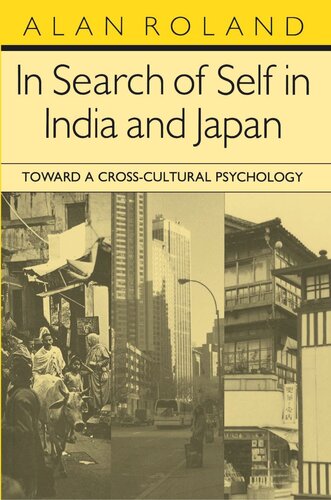

Most ebook files are in PDF format, so you can easily read them using various software such as Foxit Reader or directly on the Google Chrome browser.
Some ebook files are released by publishers in other formats such as .awz, .mobi, .epub, .fb2, etc. You may need to install specific software to read these formats on mobile/PC, such as Calibre.
Please read the tutorial at this link: https://ebookbell.com/faq
We offer FREE conversion to the popular formats you request; however, this may take some time. Therefore, right after payment, please email us, and we will try to provide the service as quickly as possible.
For some exceptional file formats or broken links (if any), please refrain from opening any disputes. Instead, email us first, and we will try to assist within a maximum of 6 hours.
EbookBell Team

0.0
0 reviewsDrawing on work with Indian and Japanese patients, a prominent American psychoanalyst explores inner worlds that are markedly different from the Western psyche. A series of fascinating case studies illustrates Alan Roland's argument: the "familial self," rooted in the subtle emotional hierarchical relationships of the family and group, predominates in Indian and Japanese psyches and contrasts strongly with the Western "individualized self." In perceptive and sympathetic terms Roland describes the emotional problems that occur when Indians and Japanese encounter Western culture and the resulting successful integration of new patterns that he calls the "expanding self." Of particular interest are descriptions of the special problems of women in changing society and of the paradoxical relationship of the "spiritual self" of Indians and Japanese to the "familial self.?
Also described is Roland's own response to the broadening of his emotional and intellectual horizons as he talked to patients and supervised therapists in India and Japan. "As we were coming in for a landing to Bombay," he writes, "the plane banked so sharply that when I supposedly looked down all I could see were the stars, while if I looked up, there were the lights of the city." This is the "world turned upside down" that he describes so eloquently in this book. What he has learned will fascinate those who wish to deepen their understanding of a different way of being.